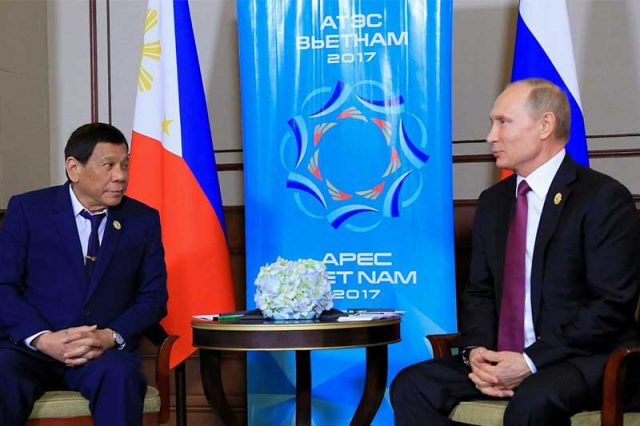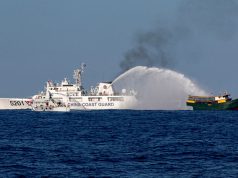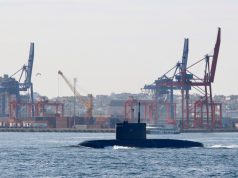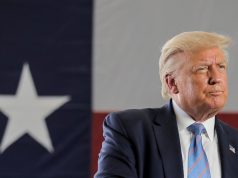
MANILA — The Philippines is at risk of breaching sanctions imposed by the United States if it proceeds with the purchase of grenade launchers from a blacklisted Russian firm, a deal that could test its longtime security alliance with Washington.
A senior Philippine general familiar with the deal said Manila had agreed in October last year to a 400 million peso ($7.48 million) purchase of 750 RPG-7B rocket propelled grenade launchers from Russia’s state-owned Rosoboronexport, but the transfer had yet to be completed.
U.S. sanctions were imposed last year against any country trading with Russia’s defence and intelligence sectors.
The law is designed to punish Russia for its 2014 annexation of Crimea from Ukraine, its support for Syria’s government and alleged meddling in the 2016 U.S. presidential election.
Russia has donated assault rifles and trucks to the Philippines but the grenade launchers would be Manila’s first purchase of Russian weapons. The Philippines has long relied on the United States as its main source of military hardware and support.
If it goes ahead, the deal could add strain to a nearly 70-year-old security alliance that Washington has described as “ironclad”, despite Philippine President Rodrigo Duterte’s disdain for the relationship with the former colonial power.
Duterte wants closer ties with China and Russia and has ordered the army and police to engage with countries which do not impose conditions on weapons sales. Some U.S. legislators campaigned to block sales of 26,000 assault rifles to the Philippines in May 2017 because of human rights concerns over an anti-narcotics campaign that has killed thousands of Filipinos.
Duterte scrapped that deal, as well as the purchase of $233 million worth of Canadian helicopters, over concerns by the sellers about how they would be used.
A U.S. State Department official said foreign governments and private sector entities had been put on notice that “significant transactions with any of the 39 listed entities will result in sanctions”. Rosoboronexport was blacklisted in April.
American allies who buy weapons and equipment from Russia, the world’s second-largest arms exporter, would also be penalised and could see the transfer of those arms disrupted.
The State Department official declined to say what specific sanctions the U.S. could impose on the Philippines if it goes ahead with the deal with Rosoboronexport, while a spokesman for the Treasury Department said it “does not telegraph sanctions or comment on prospective actions.”
A senior Philippines defence official, who requested anonymity because he was not authorised to speak to media, told Reuters the United States has not officially notified Manila about the restrictions on Rosoboronexport.
“It’s still a go until we are informed,” he added.
The army general familiar with the deal declined to comment on possible sanctions.
Jose Antonio Custodio, a Philippine security expert, warned the Russian arms deal may affect Manila’s security relations with allies, not only with its former colonial master the United States, but also with Japan and Australia.
“If the Duterte administration keeps on elevating the military-to-military relationship with Russia, it may lead to push back from these allies given international sanctions on that country for bad behaviour,” he said. ($1 = 53.4670 Philippine pesos) —Editing by Martin Petty and Raju Gopalakrishnan









